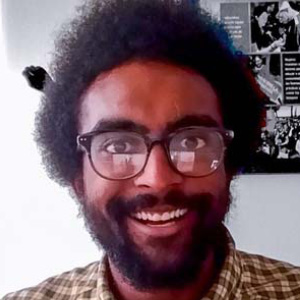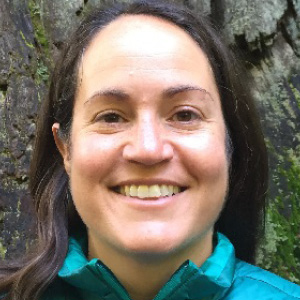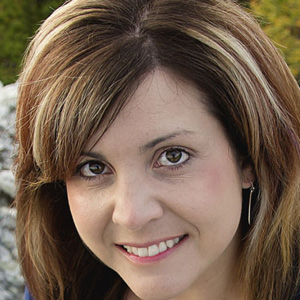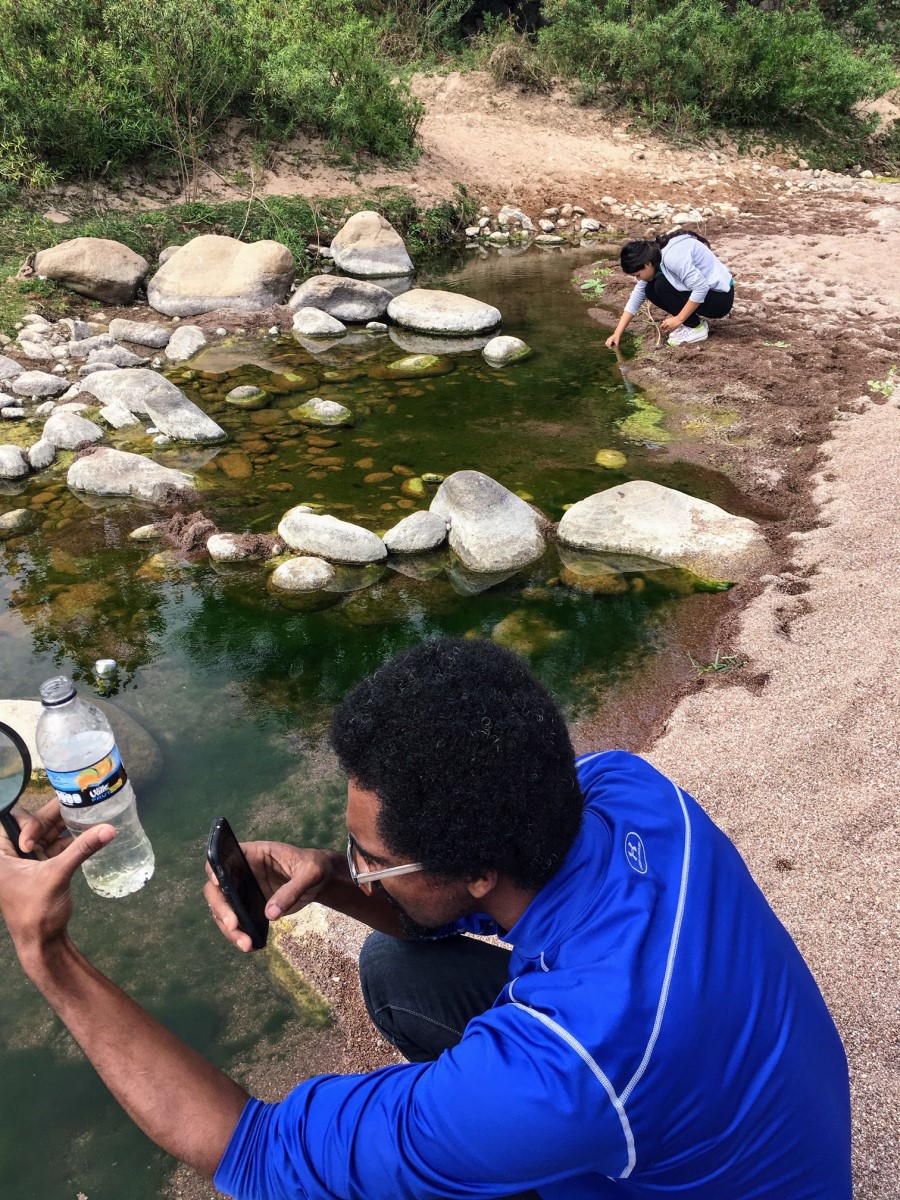
RUTH TAYLOR
RUTH TAYLOR
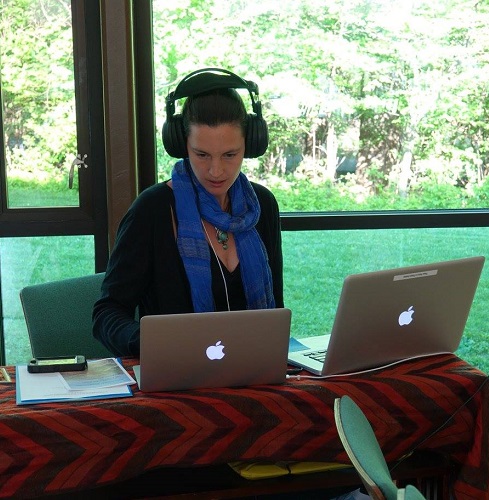
Ruth Taylor
Research Associate
Education
- M.S. University of Maryland iSchool (Human-Computer Interaction)
- B.A. Earlham College (Experiential Education)
Ruth possesses rich experience in diverse educational settings. Her career has had an emphasis on implementing project-based curricula, facilitating experiences that teach valuable skills to youth, and utilizing different learning technologies to create an optimal online learning environment. Ruth will be joining the research team and is bringing her expertise to our developing climate change project: Songs of Adaptation.
Internationally Touring Musician, Worldwide (8 album releases under “Shane Palko” 2009-2017). Years of music writing and performance have brought about 8 full-length albums, and numerous international collaborations, which have made possible a host of unquantifiably beautiful experiences. Music is more than an art: it is a means of connection, a way of building community and connecting people to what they already have, which sometimes goes unnoticed. It is a way of speaking across cultural divides, as was evidenced by official performances both for charity and profit in 27 countries including China, Thailand, South Africa, Nicaragua and many more. These tours have been self-organized in terms of destinations, funding and logistics.Socioenvironmental Education Specialist, NorthEast, MD (2017-Present). Position created specifically based on skills and passions, and to maintain connection with NorthBay Education. Entails research, writing, training of staff, and instruction. Connecting diverse populations to various environments, enabling student-centered learning, examining the interplay between social structures and natural phenomena.
Program Coordinator of Chesapeake Wilderness Institute, North East, MD (2016-2017). CWI is a small organization, umbrella’d under NorthBay Education. Coordinating this program involves developing curriculum to engage diverse populations of teenagers in character and environmental education in an outdoor setting, procuring donations, maintaining gear, training and managing a staff of educators and outdoor guides, scouting, designing trips, logistical planning, and running a restorative discipline program for students that struggle to acclimate to the outdoor context.
Educator, North East, MD (2013-2015). Full time position at NorthBay Education, working with diverse populations from the Mid Atlantic Region in the context of a one-week residential education program.
Part Time Instructor, Fair Hill Nature Center, Fair Hill, MD (May 2009-2012). Teaching various scientific units to public school classes, grades 2-5, 1 to 2 days per week. Requires an active and resourceful individual to instruct 10-20 students in an engaging manner. Lessons differ per grade. In summer months, instructs mountain biking classes to groups of approximately 15 children ages 10-14.
Intern, Urban Promise, Wilmington, DE (January 2011*). Assist teachers in the classroom setting. Instruct students in one-on-one tutoring situations. Work with students grades 1-7 in the after-school program. Teach guitar and drum technique to students during scheduled times. (*Internship ended in February, but regular volunteering continued until June.)
Camp Employee, Camp Josiah, Port Jervis, NY (Summers 2003-2009). Positions held: lifeguard, teacher, counselor, audiovisual producer. As counselor, responsible for groups of 8 youths from low-income and/or foster families from New York City. This position teaches flexibility and adaptation. As teacher of specialized classes like canoeing or fishing, communication skills are fostered. Audiovisual producer is required to have knowledge of related software and hardware; this position requires a dependable individual with superior work ethic.
Volunteer, Freedom Outreach, Wilmington, DE (2006-2012). Fostering community and engaging in both formal and informal mentoring with individuals from high-risk areas. Living by example and playing games and putting on programs in troubled neighborhoods. Stands for empowering individuals including high-risk youth, adults of low socioeconomic statuses and teens struggling to make positive choices in socioeconomically challenged communities. Volunteering at freedom outreach requires sacrifice and spending considerable amounts of time in risky areas, but is extremely rewarding getting to see networks of constructive relationships being formed and healthy growth in struggling youth.
Catchbasin Marker, part time position at the Department of Environmental Health and Safety, Newark, DE (2010-2011). More important than the number of hours available to work or the pay was the meaning of the tasks. The Department of Environmental Health and Safety worked in conjunction with the Water Resources Agency on the Stormwater Program in order to locate, mark and record nearly 1,000 catchbasins to make managing of stormwater at the University of Delaware more environmentally friendly.
Remembering John Campbell
Remembering John Campbell
Future Generations lost a friend when John Campbell passed away in November of 2018. He encouraged us to take risks; specifically to push against the limits of accreditation policies to achieve the true purposes of learning. Although no longer physically here to encourage us, his message endures. “Do the right thing,” he said, “then explain you broke the rules because not doing so would have been a worse thing.”
We first became acquainted with John a decade and a half ago when he came as a member of the Higher Learning Commission accreditation team, sent here to inspect whether Future Generations was meeting the requirements of higher education and deserved accreditation. His job was to ‘check the boxes’ and make sure we were following the rules. What set John apart was that in checking the boxes, he was searching for achieving the higher purposes of the regulations.
John spoke at length with our president, Daniel C. Taylor, and the message he gave was that to achieve learning requires going forward, building on the resources present in the place. The place of Future Generations University is the world, with students from around the world who learn from the world … and most importantly shape their local worlds into better places. John recognized the potential in our idea, which was new at the time, and remained in contact with the school until his death.
Please join us in remembering John’s remarkable life with the following account, kindly provided by his family.
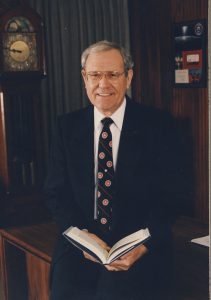
John Roy Campbell, PhD, DSC, DLitt
June 14, 1933-November 17, 2018
John was born near Goodman, Missouri and grew up on a small farm. He was the first of his immediate family to graduate from high school, and credited the receipt of a scholarship from the Sears Roebuck Corporation as the impetus to enroll in the University of Missouri-Columbia (MU). There he earned a B.S. with honors in Dairy Science from MU College of Agriculture in 1955, working three part-time jobs while doing so in order to fund his education.
Also during this time, a friend introduced him to Eunice Vieten, who shared his background of having grown up on a dairy farm. The two married and remained happily so until his passing, raising three children and later becoming grandparents along the way.
After receiving a fellowship to pursue Master of Science degree in Dairy Manufacturing, he served one year in the Army reserves, having been in the ROTC during college. Following that, he served two years of Active Duty in the Army’s Seventh Artillery. After discharge from the Army, he returned to Columbia to pursue his PhD in dairy cattle nutrition and physiology at MU. He continued serving as a member of the National Guard Army Reserves Field Artillery for the next 22 years, rising to the level of Lieutenant Colonel and Battery Commander of his unit. In 1983, John received The Meritorious Service Medal from the United States Army for his service.
Following completion of his PhD in 1960, John joined the MU Dairy Science faculty where he quickly rose through the ranks to become a full professor in 1968. He received nearly every award available to faculty members during his 17 years teaching there.
John taught several courses relating to dairy husbandry and animal sciences, and co-authored two textbooks. He viewed students as “our nation’s most valuable resource.” He wrote his book In Touch With Students: A Philosophy for Teachers (1972) to share his teaching philosophies with others.
In 1977, John was recruited by the University of Illinois as College of Agriculture Associate Dean and Director of Resident Instruction. In this new role, he demonstrated a zeal for the land-grant philosophy of higher education – providing educational and career opportunities for the sons and daughters of the working classes. He gained support from private individuals and corporations to establish a merit-based scholarship program to help recruit, recognize and support high-caliber students to pursue careers in agriculture, home economics and related professional fields. He selected the name Jonathan Baldwin Turner (JBT) Agricultural Merit Scholarship Program in honor of one of the initial proponents of land-grant universities. The program has been highly successful with alumni holding prominent positions in industry and at universities.
In 1983, John was named Dean of the College of Agriculture at the University of Illinois. Innovation, dedication and cooperation with people, both within and outside the College of Agriculture, were hallmarks of his deanship. His leadership was central to the College obtaining $61.2 million for construction of five new facilities. Colleagues have referred to his time at Illinois as “a golden era.”
John was appointed the fifteenth President of Oklahoma State University (OSU) on August 1, 1988 and served until 1993. At OSU he continued his student focus, championed international involvement and inter-university partnerships, and expanded distance learning. He resigned as OSU president in 1993 to teach in the OSU College of Agriculture and resume writing. In 1998, he published his fourth book Reclaiming a Lost Heritage: Land-Grant and Other Higher Education Initiatives for the Twenty-First Century, which has been used in teaching Honors Courses and educating others on the heritage of the land-grant system.
John retired from Oklahoma State University in 1999 and returned to Columbia, Missouri to take aim at new goals and opportunities. During this time, he served as a Consultant-Evaluator for the Higher Learning Commission/North Central Association and on the National University of Natural Medicine’s Board of Directors from 1998-2013. He also continued presenting lectures for numerous organizations. Having viewed the need for changes to increase societal perceptions of higher education, he wrote a novel titled Dry Rot in the Ivory Tower: A Case for Fumigation, Ventilation, and Renewal of the Academic Sanctuary, and another textbook, Companion Animals: Their Biology, Care, Health, and Management.
Throughout his professional career, John demonstrated a caring attitude toward and sincere interest in students, their careers, and personal lives. He had the privilege of teaching more than 12,000 students and published more than 100 papers. He accomplished much and left a legacy at each of the universities where he served.
He loved to tell stories and share the knowledge he had gained through his many journeys and discussions with people from “all walks of life” and was quick to extend congratulations to others on their accomplishments. At this time of loss, a smile comes to mind envisioning John sharing stories with those who preceded him in “graduating to heaven.”
JULIE MALDONADO
JULIE MALDONADO
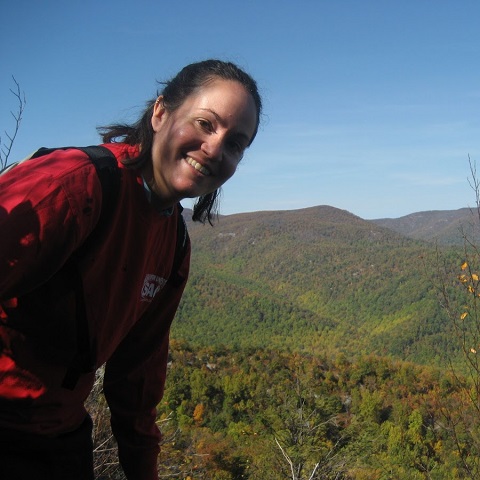
JULIE MALDONADO
Assistant Professor
Education
- BA Washington University (Psychology)
- MA American University (Public Anthropology)
- PhD American University (Anthropology)
- PRC 602 Social Research Methods
Books:
- Maldonado, JK. 2018. Seeking Justice in an Energy Sacrifice Zone: Standing on Vanishing
Land in Coastal Louisiana. London/New York Routledge Press. - Cernea, M and JK Maldonado. 2018. Challenging the Prevailing Displacement and Resettlement Paradigm: Risks, Impoverishment, Legacies, and Solutions. London/New York Routledge Press.
- Maldonado, JK, R Pandya, and B Colombi, eds. 2014. Climate Change and Indigenous Peoples in the United States: Impacts, Experiences and Actions. Cham, Switzerland, Springer Publishing International. Reprinting of Maldonado, JK, R Pandya, and B Colombi, eds. 2013. Climate Change and Indigenous Peoples in the United States: Impacts, Experiences and Actions. Climatic Change 120(3).
Journal Articles:
- Maldonado, JK. 2016. Considering Culture in Disaster Practice. Annals of Anthropological Practice. AJ Faas, editor, Special Issue.
- Maldonado, JK, B Taylor, and M Hufford. 2016. The Livelihoods Knowledge Exchange Network: Grow Where You Are. Practicing Anthropology, Special Issue: Activism, Agency and Engagement with Extraction, J Simonelli and S Fiske, co-editors. 38(3).
- Maldonado, JK, TMB Bennett, K Chief, P Cochran, K Cozzetto, B Gough, MH Redsteer, K Lynn, N Maynard, G Voggesser. 2016. Engagement With Indigenous Peoples and Honoring Traditional Knowledge Systems. Climatic Change 135: 111-126.
- Maldonado, JK. 2014. A Multiple Knowledge Approach for Adaptation to Environmental Change: Lessons Learned from Coastal Louisiana’s Tribal Communities. Journal of Political Ecology 21: 61-82.
- Maldonado, JK, C Shearer, R Bronen, K Peterson and H Lazrus. 2013. The Impact of Climate Change on Tribal Communities in the US: Displacement, Relocation, and Human Rights. Climatic Change 120(3): 601-614.
- Maldonado, JK. 2012. A New Path Forward: Researching and Reflecting on Forced Displacement and Resettlement. Report on the International Resettlement Conference: Economics, Social Justice, and Ethics in Development-Caused Involuntary Migration, The Hague, 4-8 October 2010. Journal of Refugee Studies 25(2): 193-220.
Book Chapters:
- Maldonado, JK and K Peterson. 2018. A Community-based Model for Resettlement: Lessons from Coastal Louisiana. In The Routledge Handbook of Environmental Displacement and Migration. R McLeman and F Gemenne, eds. Routledge Press.
- Hiza Redsteer, M, I Krupnik, and JK Maldonado. Forthcoming. Native American Communities and Climate Change. In Handbook of North American Indians. Vol. 1 – Introduction. Igor Krupnik, ed. Washington, DC: Smithsonian Institution Scholarly Press.
- Maldonado, JK. 2017. Corexit to Forget It: The Transformation of Coastal Louisiana into an Energy Sacrifice Zone. In ExtrACTION: Impacts, Engagements and Alternative Futures. K Jalbert, A Willow, S Paladino, and D Casagrande, eds. London/New York: Routledge Press.
- Maldonado, JK. 2016. The Practical and Policy Relevance of Social Network Analysis for Disaster Response, Recovery and Adaptation. In Social Network Analysis in Disaster Response, Recovery, and Adaptation. E Jones and AJ Faas, eds. Pp. 255-268. Elsevier.
- Maldonado, JK, H Lazrus, B Gough, SK Bennett, K Chief, C Dhillon, L Kruger, J Morisette, S Petrovic, K Whyte. 2016. The Story of Rising Voices: Facilitating Collaboration between Indigenous and Western Ways of Knowing. In Responses to Disasters and Climate Change: Understanding Vulnerability and Fostering Resilience. MCompanion and M Chaiken, eds. Boca Raton, FL: CRC Press.
- Peterson, KJ and JK Maldonado. 2016. When Adaptation is Not Enough: Between Now and Then of Community-led Resettlement. In Anthropology and Climate Change, 2nd edition. S Crate and M Nuttall, eds. London/New York: Routledge Press.
- Maldonado, JK, AP Naquin, T Dardar, S Parfait-Dardar and B Bagwell. 2015. Above the Rising Tide: Coastal Louisiana’s Tribal Communities Apply Local Strategies and Knowledge to Adapt to Rapid Environmental Change. In Disasters’ Impact on Livelihood and Cultural Survival: Losses, Opportunities, and Mitigation. M Companion, ed. Pp. 239-253. Boca Raton, FL: CRC Press.
Reports:
- Gonzalez, P, G Garfin, D Breshears, K Brooks, H Brown, E Elias, A Gunasekara, N Huntly, J Maldonado, N Mantua, H Margolis, S McAfee, and BR Middleton (forthcoming, 2018) Chapter 25 “Southwest.” In Fourth National Climate Assessment, Volume II: Impacts, Risks, and Adaptation in the United States. US Global Change Research
Program. - Maldonado, J and K Cozzetto. 2018. Gila River Indian Community Climate Adaptation and Resiliency Project: Workshop Series Summary Report.
- Maldonado, J, N Cooley, and K Cozzetto. 2018. Navajo Nation Climate Change Adaptation Planning Workshop: Establishing Natural Resource Priorities. Summary
Report. - Cozzetto K, J Maldonado, S Fluharty, J Hostler, C Cosby. 2018. Yurok Tribe Climate Change Adaptation Plan for Water and Aquatic Resources. 1 Institute for Tribal Environmental Professionals (ITEP), Northern Arizona University, Flagstaff, AZ. 2 Yurok Tribe Department of Environmental Quality (YTEP), Klamath, CA.
- Powell, D and J Maldonado, eds. 2017. Just Environmental and Climate Pathways: Knowledge Exchange Among Community Organizers, Scholar-Activists, Citizen- Scientists and Artists. Workshop report. Society for Applied Anthropology Annual Meeting. 28 March 2017. Santa Fe, New Mexico. http://likenknowledge.org/wp-content/uploads/2018/02/Climate-Pathways-Workshop-Report_Santa-Fe_March-2017.pdf
- Bennett, TM B, NG Maynard, P Cochran, R Gough, K Lynn, J Maldonado, G Voggesser, S Wotkyns, and K Cozzetto. 2014. Ch. 12: Indigenous Peoples, Lands, and Resources. In Climate Change Impacts in the United States: The Third National Climate Assessment. JM Melillo, TC Richmond, and GW Yohe, eds. Pp. 297-317. U.S. Global Change Research Program. http://nca2014.globalchange.gov
JODIE WIMER
JODIE WIMER


